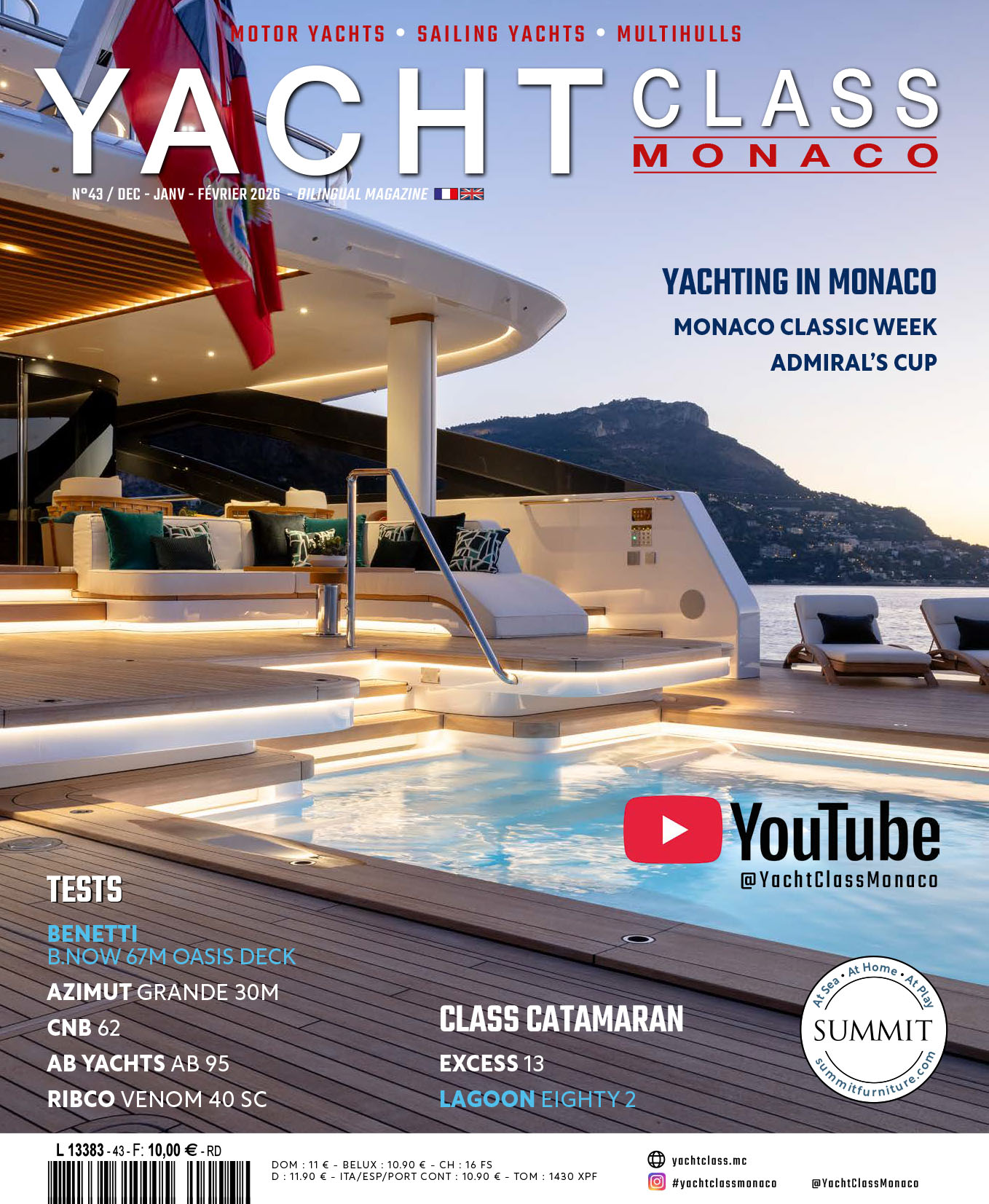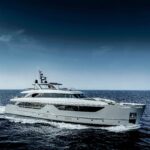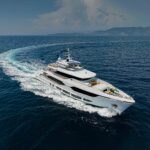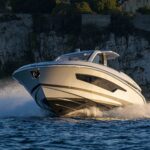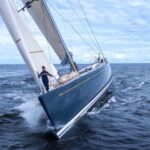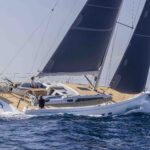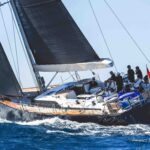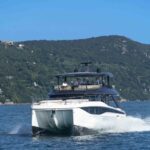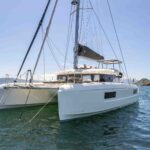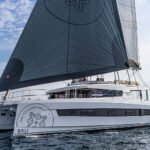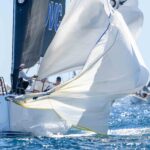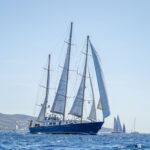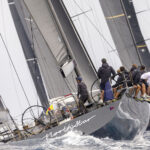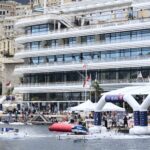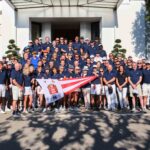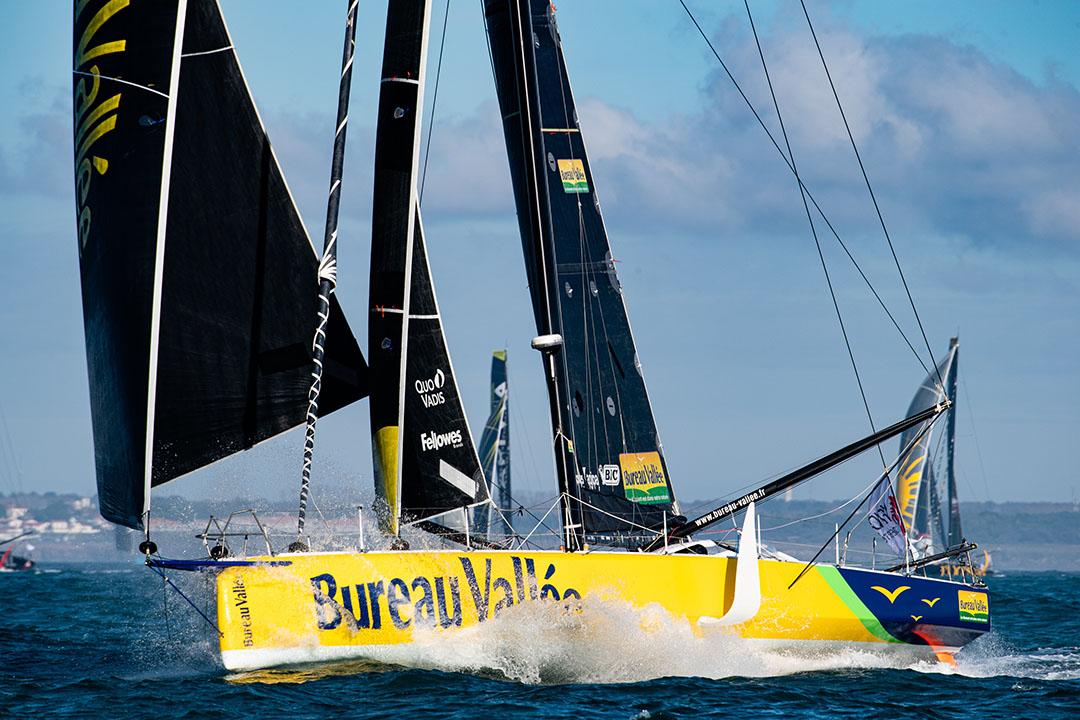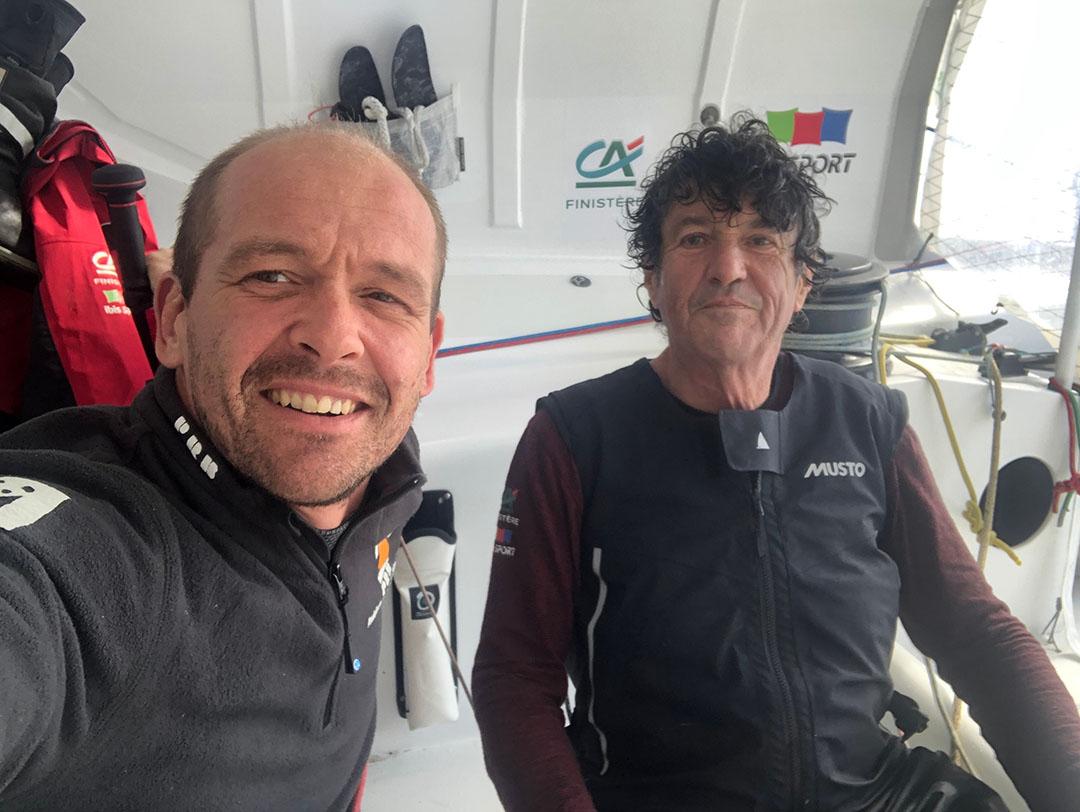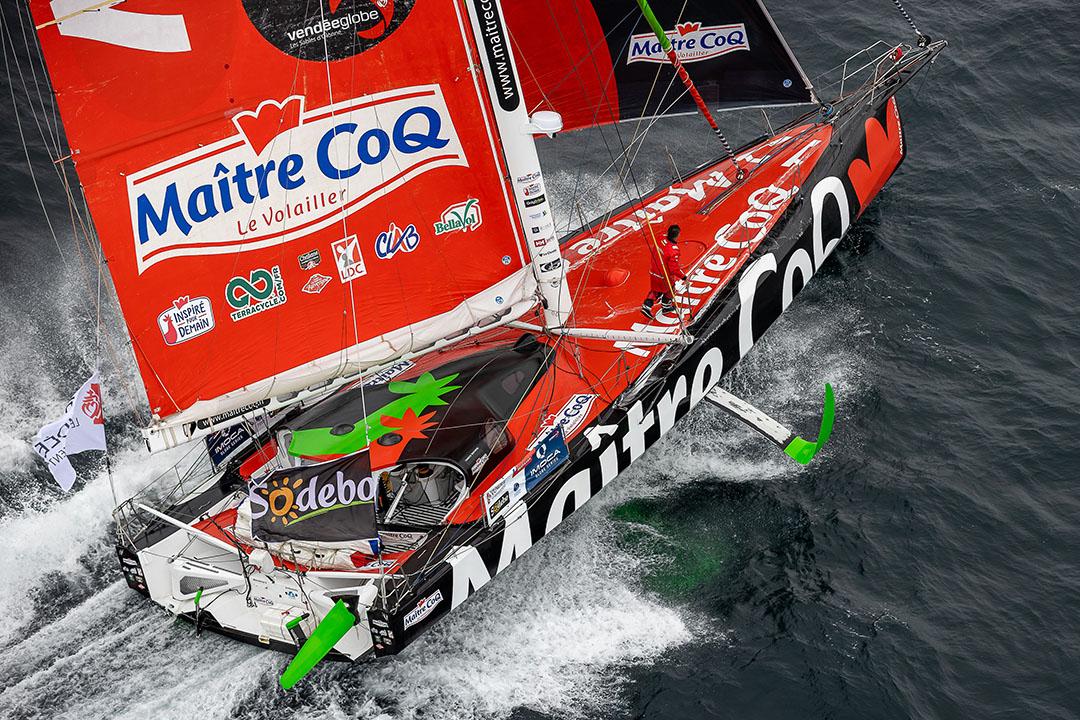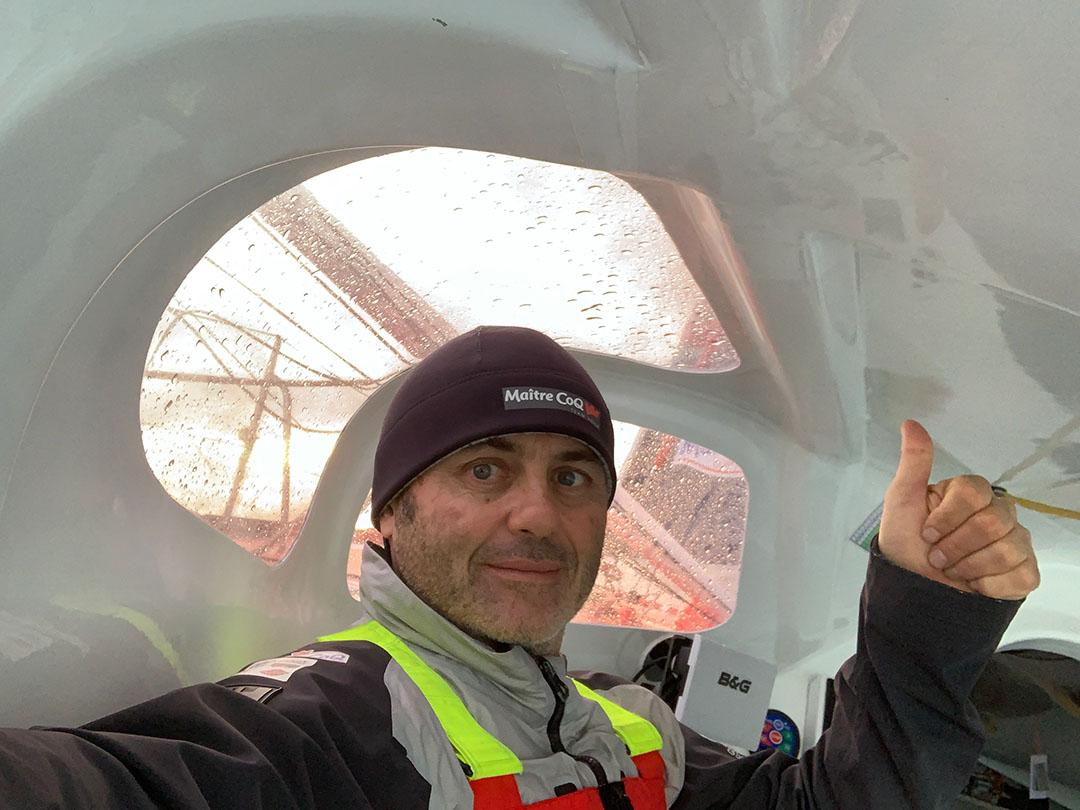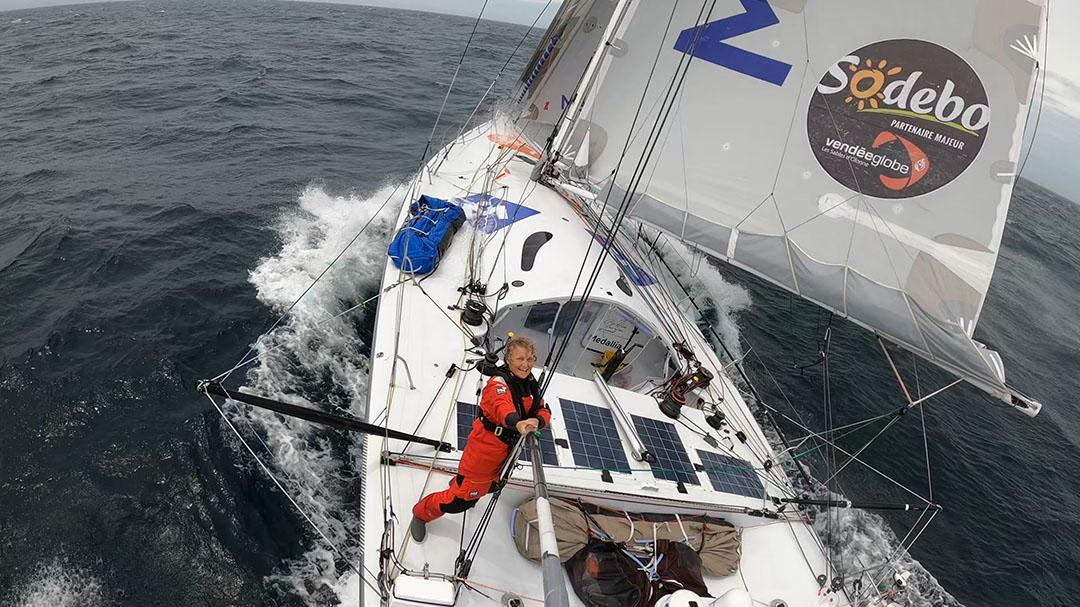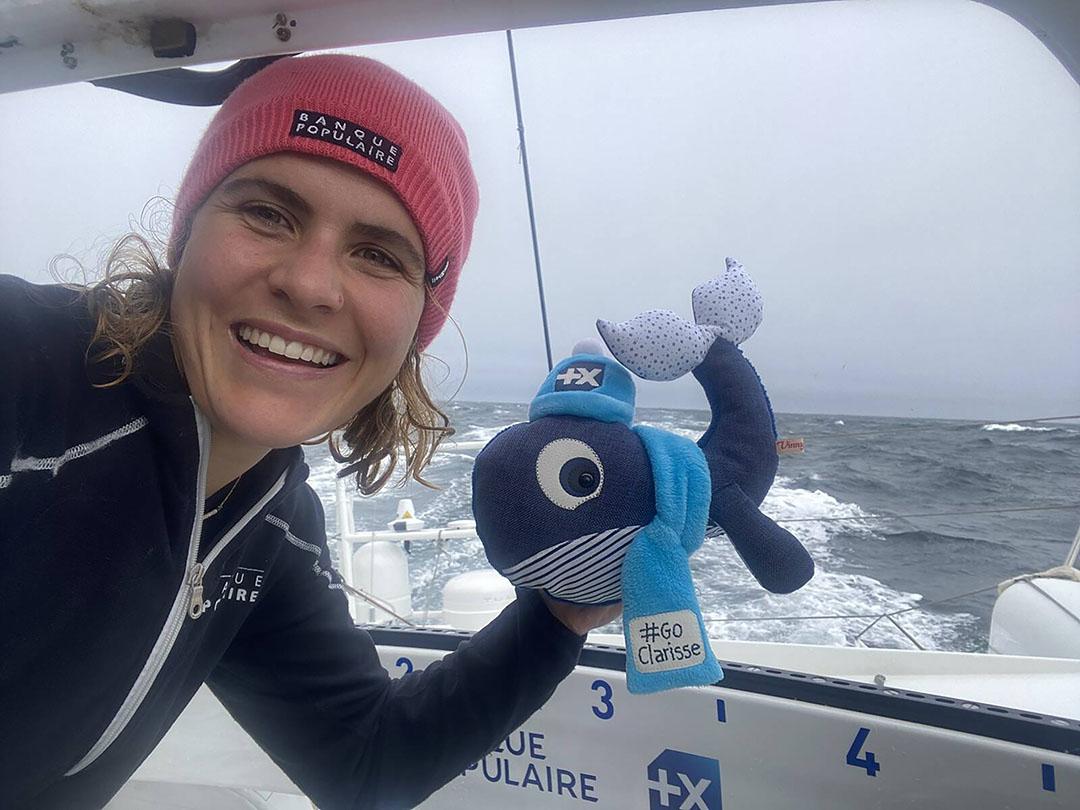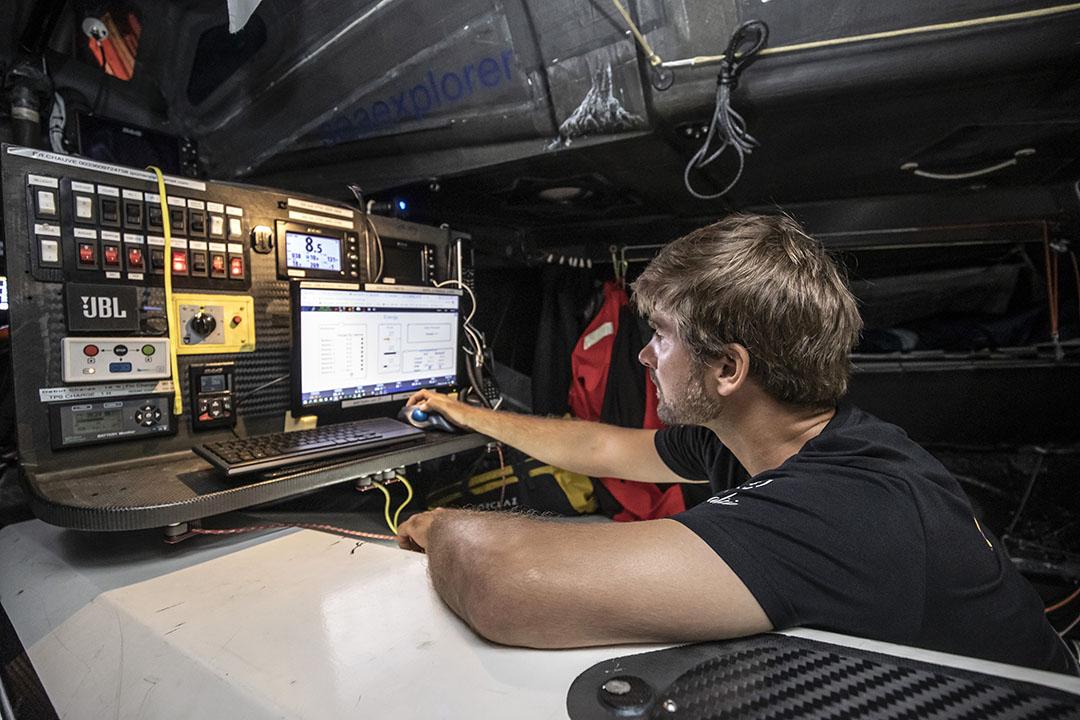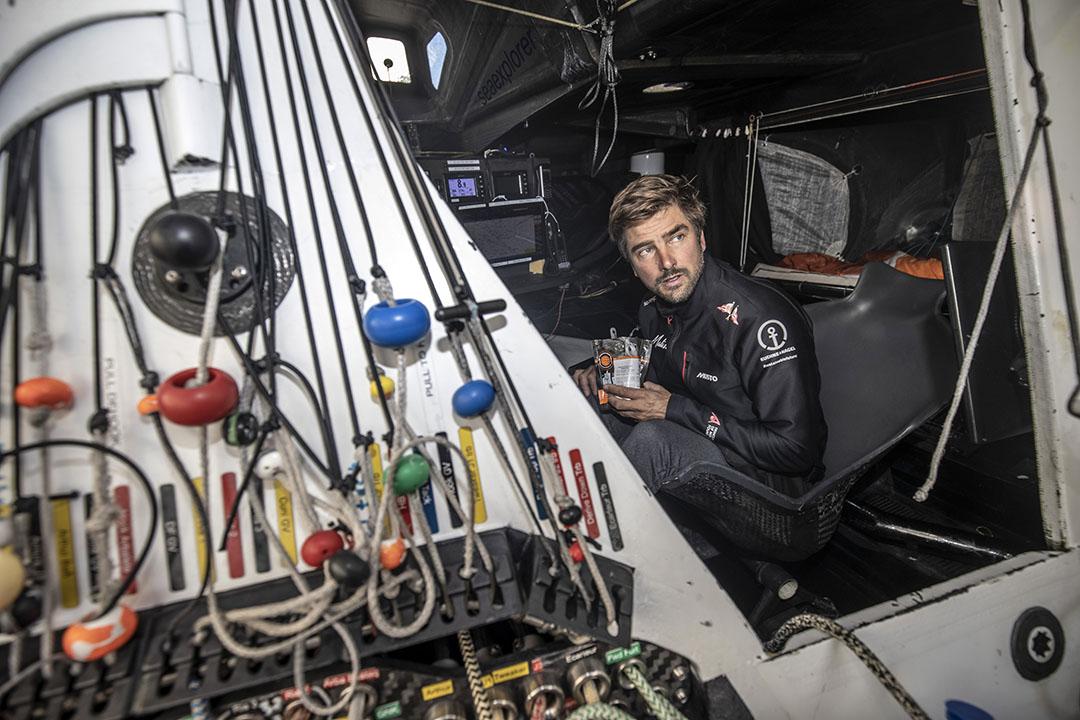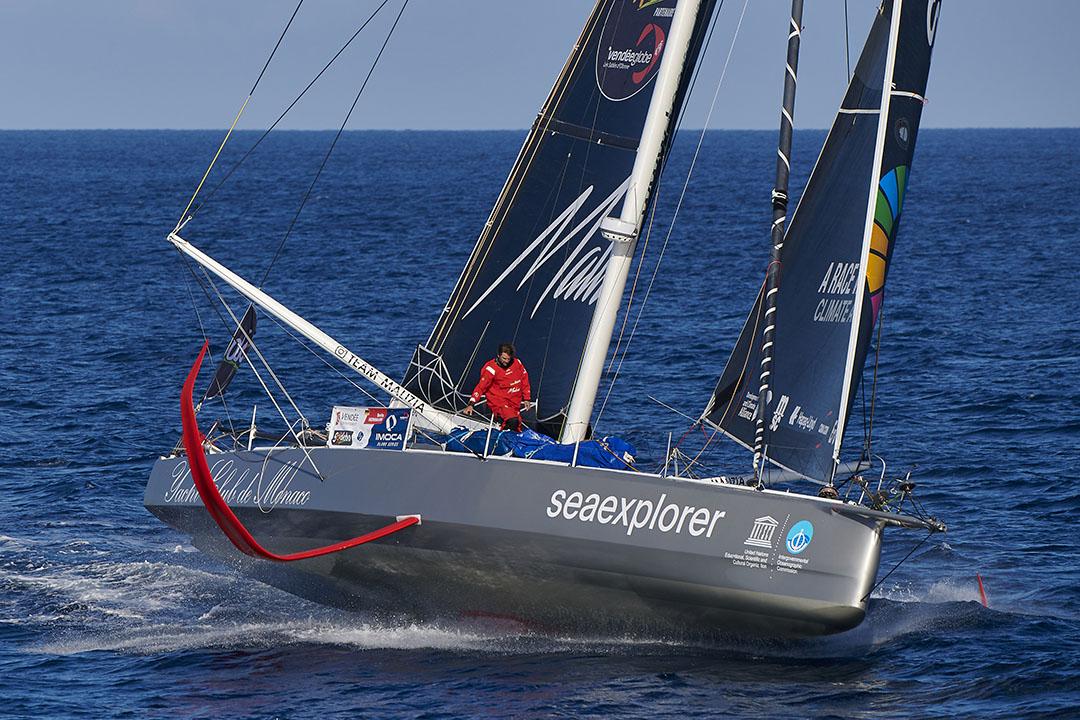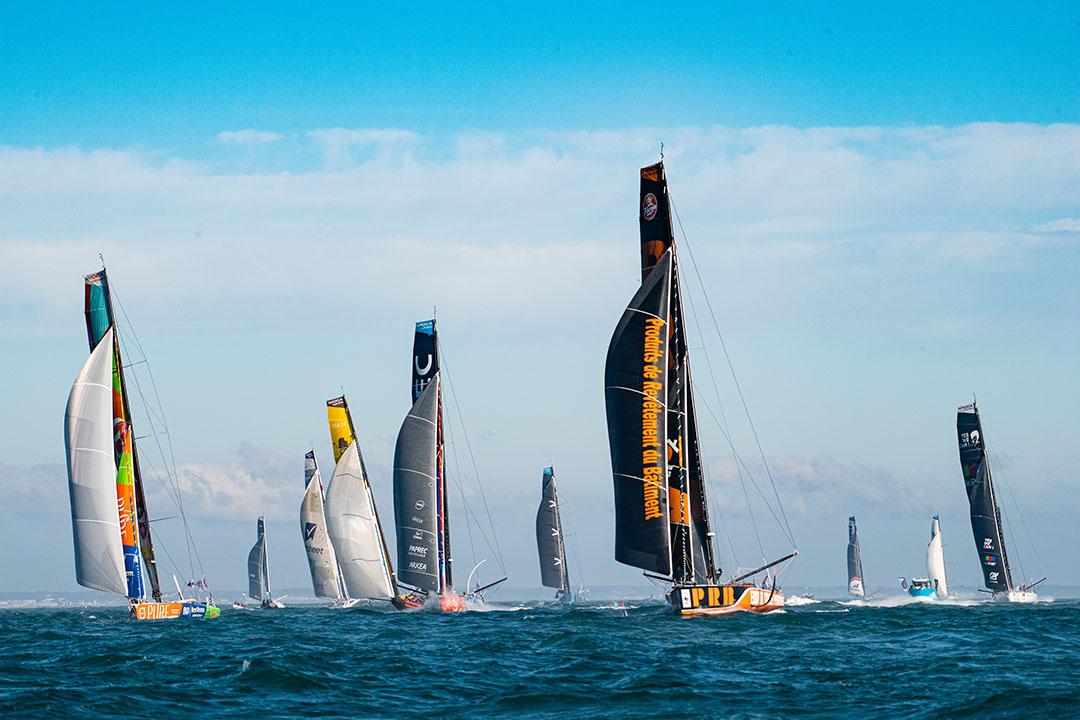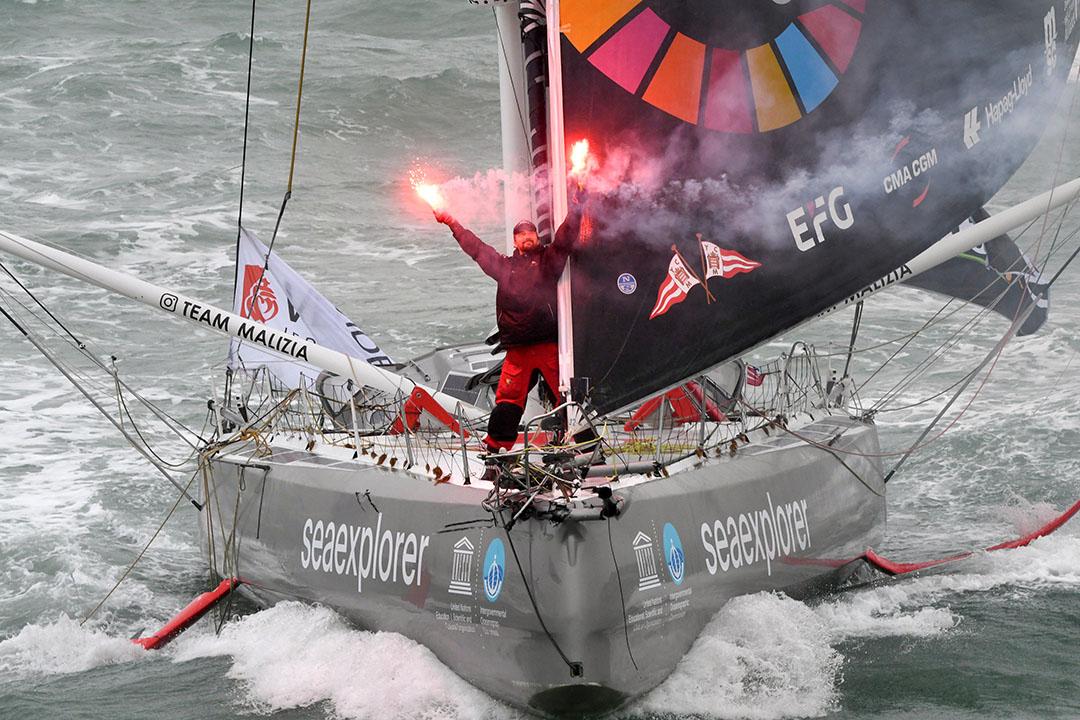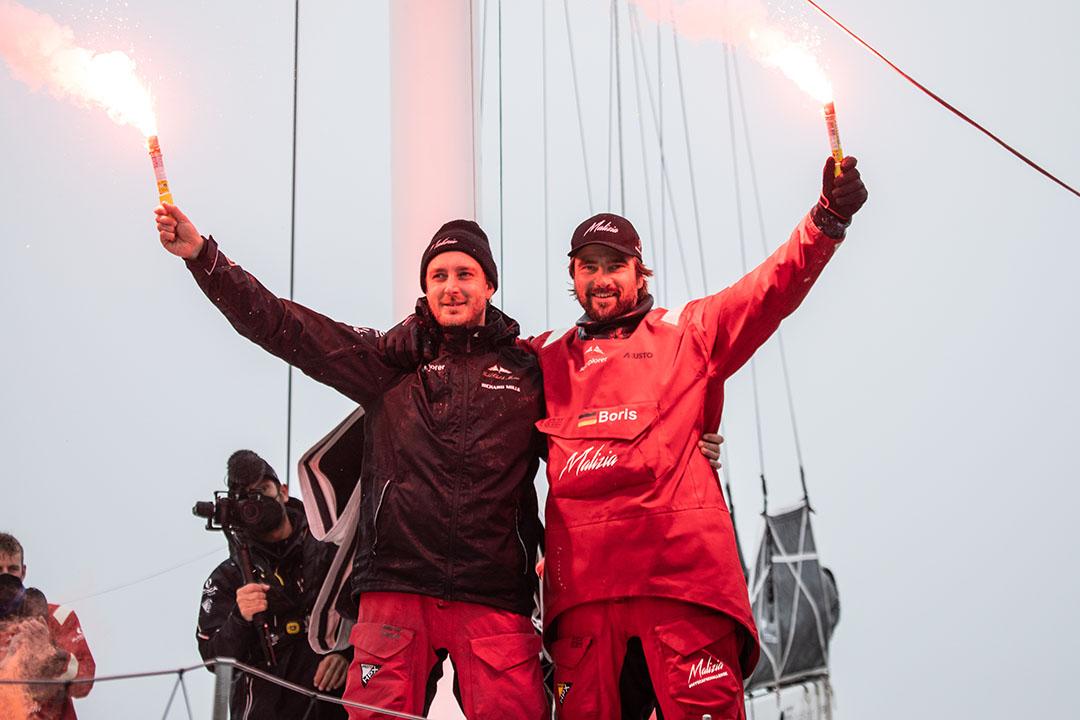Yacht Class n°24 (march-april-may 2021)
The ninth edition of the Vendée Globe will be remembered for its unimaginable scenario with its rescue, its suspense to the end and its wonderful human stories. Among the 33 skippers, Boris Herrmann, one of the great revelations, made the Principality of Monaco dream. A look back at an event of anthology.
Texte : Christophe Varène – Photos : Jean-Louis Carli – Bernard le Bars – Yvan Zedda – Jean-Marie Liot – CPL Phil Due/BFSAI
Only a sailor could think of such a crazy ordeal. Double winner of the BOC Challenge, Philippe Jeantot pushed back the limits by creating, in 1989, this single-handed race around the world without assistance… Of course, there were dramas with disappearances, those of Mike Plant and Nigel Burgess before and during the 1993 race, then that of Gerry Roufs in 1997, not to mention shipwrecks and rescues: from the first one, spectacular as it was filmed, of Philippe Poupon whose boat was straightened by Loïck Peyron, to the one, a few weeks ago, of Kevin Escoffier by Jean Le Cam, himself recovered, in 2009, by Vincent Riou. But there were also moments of bravery, such as Bertrand de Broc’s operation to sew up his tongue or the incredible reconstruction of a mast by Yves Parlier, with the means at hand, the skipper finishing his round the world race by feeding on mussels recovered during his stopover. And what can we say about the advent of exceptional sailors, starting with Catherine Chabaud, the first woman to complete a round-the-world single-handed race, and Ellen MacArthur, a 24 year old English girl who holds her head hight against Michel Desjoyeaux, finishing second in the 2000-2001 edition. And if we have to mention the winners – Titouan Lamazou, Alain Gautier, Christophe Auguin, Michel Desjoyeaux, the only one to have won the race twice, Vincent Riou, François Gabart, Armel Le Cléac’h and, most recently, Yannick Bestaven – we must not forget all the skippers, women and men, who set off on this adventure, which is always demanding in terms of skills. And, in terms of technology, what about the arrival of the foils that transformed the boats into flying machines. As a result of this evolution, in three decades, the Vendée Globe record has gone from 109 days and 8 hours to 74 days and 3 hours! We’re asking for more!
Boris Herrmann, so close to the dream…
Boris Herrmann has undeniably revealed himself in the eyes of the lovers of this race. After a long preparation, major work to optimise his boat with new foils, and rational navigation, he could have been the big winner of this edition.
With less than 24 hours to go to the finish, Boris Herrmann, on board the SeaExplorer-Yacht Club de Monaco, took third place in the 2020-2021 Vendée Globe on 27th January and, with the six hours of compensation obtained after Kevin Escoffier’s rescue operation, he is playing for victory in this insane event where nothing went as expected. However, 90 miles from the finish line (roughly four hours from the goal), while he had run a clean, precise and combative race while sparing his boat, a collision with a Spanish trawler ruined his last hopes of brandishing this trophy so coveted by the best sailors in the world.
After securing his IMOCA, which had been badly damaged in the impact (breakage of his starboard foil, breakage of a shroud, breakage of his bowsprit and of his forward balcony), he continued at reduced speed and crossed the line on 28th January at 11:19 am. With a race time of 80 days 14 hours 59 minutes and 45 seconds, he finished fifth and became the first German sailor to finish the Vendée Globe. And, as a champion, to put things into perspective as soon as he set foot ashore: “What would have been a misfortune was to have had to give up. The Vendée Globe is a much deeper adventure than third or fourth place. It is one of the last adventures of our time.” Less than 10 days after his arrival, Boris Herrmann admits that he is still very tired. “After intense projects like this, you have to give yourself time to regain energy,” he confides. Before going back to the rescue of Kevin Escoffier, a very hard moment mentally. “I was right on his road and Jean (Le Cam) was right next to him, but when he lost Kevin, the Race Direction asked me to go. It’s normal, I was expecting it. What’s the point of continuing afterwards if you have lost a fellow? Nothing else matters at that moment.” Certain of the quality of his boat’s construction, which he has known by heart for the four years he has been sailing her, Boris Herrmann has never had any doubts or fears afterwards. “Of course, every day there are ups and downs… Like at Cape Horn where I have a problem with the mainsail and I lose several places at that moment.” In this respect, he emphasises how he has tried to be as honest as possible about his emotions and the most open in his communication. “I’ve always said when I was stressed, I even cried when I tore the mainsail leech at Cape Horn.” But, as he said, just after his collision before the finish, “It is in those moments that I am the strongest. I blow, I calm down and I fix the problem.”
Some observers may have blamed him for having been too cautious, for not having believed enough in his chances, but Boris does not regret anything in the way he sailed. “I think I was right to preserve my boat and four hours before the finish, everything was possible, I could still win the Vendée Globe.” And given the few criticisms that have been levelled at the new foils, he is categorical: “Foils are clearly the future. It is the innovative strength of the IMOCA class that makes this sport interesting. This Vendée Globe was unique with old boats well placed, but on the transatlantic races, very quickly you do not see them anymore. Until then, you had to pay a lot to be lighter, have better ballast and obtain small gains, but now you can fly, sail 10 knots faster. We still do not know how to control them and there will be 10 years of empirical research. It is a promising and interesting path.” So, if he does not start today, there is a good chance that Boris will be back on the starting line of the Vendée Globe in four years’ time. With even more ambitions.
Nothing was planned, except emotion.
Six women and twenty-seven men with the oceans as their playground. Storms, a rescue, tears, smiles, and an indecisive victory: this is no longer a round-the-world race, but a planetary regatta, breathtaking!
What can we learn from this Vendée Globe 2020-2021? It looks like a Prévert-style inventory… A delayed start due to the fog. The curse of Alex (Thomson): the Boss (Hugo) abandons due to structural problems. The misfortunes of Jérémie (Beyou): the bull (Charal) returns before leaving for the arena. The distress of Kevin (Escoffier): “I’m sinking! I’m not laughing…” – “I’m not laughing…”. – Mayday! “… the three text messages sent when his boat breaks in two and he has to abandon her. King John’s phlegm (Le Cam): “Yes He Can” and he recovers Kevin after a night looking for him in 30 knots of wind and 5 meters of waves. Solidarity between sailors: Yannick (Bestaven), Boris (Herrmann) and Sébastien (Simon) turn away to help and assist in the search.
Damien (Seguin)’s will: born without a left hand, he finishes in 7th place and goes up the Chenal des Sables in the costume of Captain Hook! The strength of the women: the six skippers, Clarisse (Cremer), Pip (Hare), Miranda (Merron), Alexia (Barrier), Sam (Davies) and Isabelle (Joschke), will all cross the finish line, even if Sam and Isabelle will finish out of the race. Clarisse’s freshness: if she discovers ocean racing in 2017 with the Mini Transat, she learns quickly and ranks 12th and first woman in this Vendée Globe by beating Ellen MacArthur’s record. Just that!
Pip and Isabelle’s rage: with repeated damage, they stumble, but always get up and leave. Respect, Ladies! The rage of Louis (Burton): the Malouin stops in the shelter of Macquarie Island, repairs and makes a spectacular comeback to finish third. The elegance of Charlie (Dalin): in the great game “Where is Charlie?”, the answer is often “In the lead!” but if he wins the Line of Honours, he unreservedly congratulates Yannick on his victory. Yannick’s mental: for a long time in the lead by a comfortable margin, he saw him come back and then be overtaken by several competitors, but with great strength of character he held on to win on the wire. Cock-a-doodle-doo! The courage and tenacity of all the competitors who have finished this circumnavigation: if being at the start is already a victory, being at the finish is a phenomenal exploit. Hats off to Thomas, Giancarlo, Benjamin, Maxime, Armel, Romain, Arnaud, Kojiro, Alan, Stéphane, Didac, Clément, Manuel and Ari. The sadness and dismay of all those forced to retire: Nicolas, Kevin, Alex, Sébastien, Sam, Fabrice, Isabelle and Sébastien, your emotion and your words have touched us and make the beauty of the Vendée Globe. As Sébastien (Destremau) would say: Thank you!
Pierre Casiraghi, Boris Herrmann’s first supporter
In his interviews, Boris Herrmann often talks about his friend Pierre Casiraghi, second son of H.R.H. The Princess of Hanover, a sailing companion and strong support of the German sailor in his preparation. He gives us his impressions at the finish of the Vendée Globe.
We know that you are very close to Boris, how did you accompany him in his Vendée Globe?
We sailed a lot together and I manage to immerse myself in the situation he is in because I know him well, and the boat too. It is sometimes frustrating because you want to help, to be there, but you cannot, so you have to find other ways. I try to convey to him that we have to do things step by step, minute by minute, day by day and then if day by day it seems too long then we reduce minute by minute to move forward little by little. I remind him that if he seems very far from coming back to earth, it will happen and he will come back. You have to find the words, sometimes it works, and sometimes it does not…
You are proud and happy of what he has achieved, and even if he was close to winning the Vendée Globe, a fifth place is extraordinary. How do you see it?
That’s exactly it. There are mixed emotions when I hear about the accident, but unfortunately these are things that happen in sailing. You know it and sometimes you forget it, but you repeat to yourself that the race is not over until you cross the line. There are thousands of examples that we have experienced together on other boats, on other regattas. You think that everything is fine and then you hook a buoy, you pull out a rudder, there is a moment of inattention: it is part of the game, until the end it is not over. It reminded us of this and that is why we like this sport which always comes with a fair share of surprises.
Monaco has an important maritime past. Does it continue?
Monaco lives by the sea, long before the Oceanographic Museum and the work of Prince Albert 1st. Already in the 14th century, the sailors of the French Navy were led by the Grimaldis and during the Hundred Years War, the sailors of Monaco were there. We have a past rooted in the sea. Until the 19th century, access to Monaco was almost exclusively by sea, so this is part of Monaco’s DNA. We are going to continue this way, hoping to be in perfect harmony with the sea and without polluting it.
Will we see a Yacht Club de Monaco boat at the start of the Vendée Globe in four years’ time?
I do not know, but I will certainly not be on board for a circumnavigation of the world (laughs). It is a very difficult event and as Boris said, taking part in a Vendée Globe is also a very tough project. I cannot guarantee that. First of all, he needs to rest… and so do I. We have been pushing this project for four years, we have earned a break before seeing what we are going to do.
